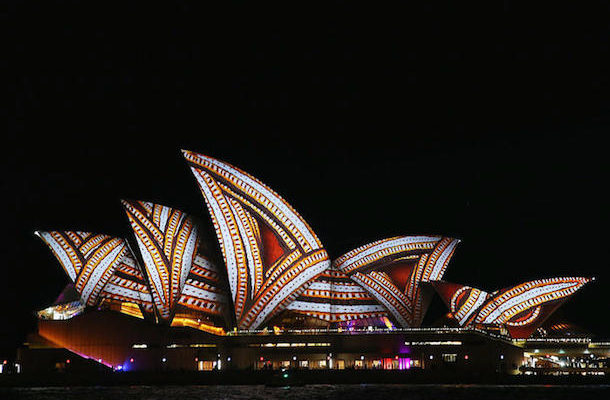 A Charles
Sturt University (CSU) academic argues that ABC radio Triple J's decision to
move the date its annual announcement of the Hottest 100 hits of the past year is
part of the growing public momentum to change the date of Australia Day.
A Charles
Sturt University (CSU) academic argues that ABC radio Triple J's decision to
move the date its annual announcement of the Hottest 100 hits of the past year is
part of the growing public momentum to change the date of Australia Day.
Associate Professor of political science Dominic O'Sullivan in the CSU School of Humanities and Social Sciences said in a recent Open Forum article that Triple J's popular music program is marketed as a celebration of music. In 2016 more than 2 million people voted for their favourite song of the year, and the 100 most popular are played on Australia Day, 26 January.
Triple J management said its decision to move the program was not political but a commercial response to a survey of its listeners, where 60 per cent of the 65 000 respondents wanted the Hottest 100 broadcast on another day.
Respondents, including many Indigenous musicians, argued Australia Day is not a day of celebration.
The survey and the Triple J management decision is inevitably being seen as a boost to the Australia Day 'change the date' movement.
The federal Minister of Arts and Communications, Senator the Hon. Mitch Fifield, has accused the station of trying to 'delegitimise' Australia Day, and has asked the ABC Board to review the decision.
Professor O'Sullivan said the 'change the date argument' is gaining momentum.
"There is growing support for a national day that is inclusive of everybody and that respects Indigenous Australians as part of the national community, Professor O'Sullivan said.
"Many people argue that 26 January is not a day on which this can occur.
"Whichever the national day, people need to be able to show how it is inclusive of everybody, otherwise it cannot serve its purpose as a symbol of nationhood."
Professor O'Sullivan says it would be foolish to say that change is imminent or that there is even a broad national consensus that this should occur. However, he notes, the momentum does appear to be in that direction.
"The size of the response to the Triple J survey is significant, and several local government authorities have taken the decision to discontinue citizenship ceremonies on Australia Day," Professor O'Sullivan said.
"The momentum is now such that people who wish to keep the national day on 26 January need to develop their arguments more effectively than they have so far.
"It may be that Triple J has 'delegitimised' Australia Day, but that argument alone won't save the day for Senator Fifield. A more substantive and respectful response from those who want 26 January to remain the national day is needed.
"The question of inclusion needs to be addressed," Professor O'Sullivan said.Read the Open Forum article, A national day is an inclusive day - it must be positive for everybody, by Professor O'Sullivan.





Social
Explore the world of social